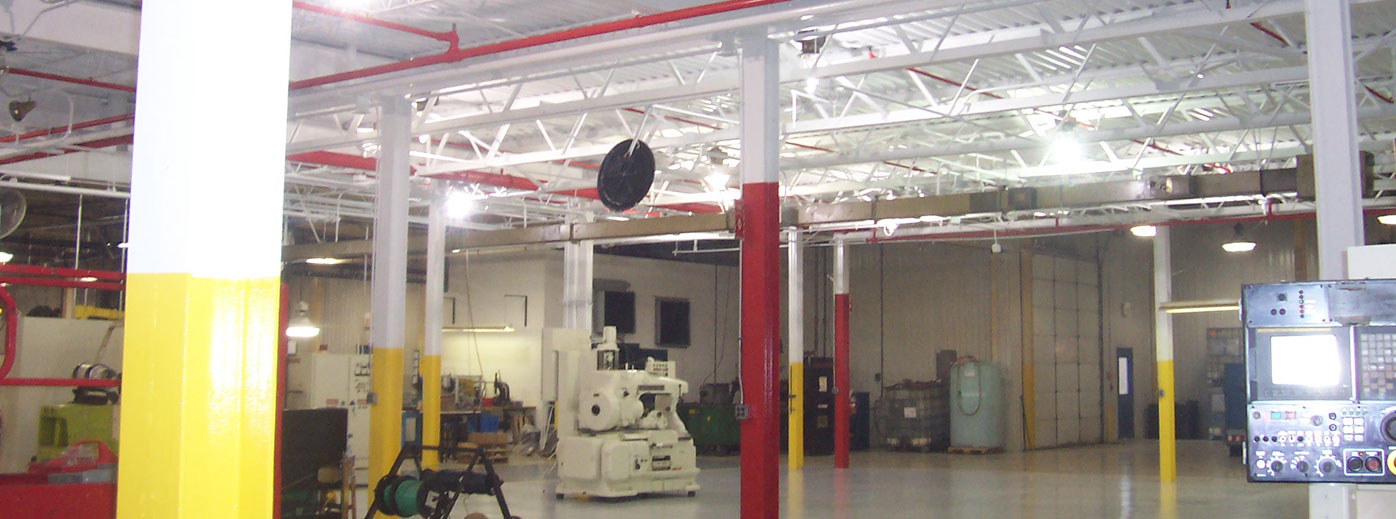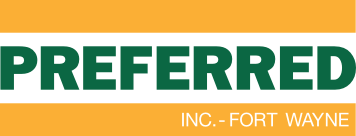Selecting Quality, Color, and Type of Paint
PART 4
Good news: You don’t have to worry about selecting the right materials for your project!
Choosing the right paint for the project should be left to your contractor – they need to match the paint used to the equipment, life cycle, and your budget. In the long run, there are too many factors involved for clients to make these selections.
That said, you’re not a passive participant in the process, either! There are questions you can ask and knowledge you can take with you into the process.
Let’s cover the points that you should know as an informed client.
Paint Quality And Performance
Although some brands compete on price and others don’t, paints intended for the same jobs don’t differ by much. There is no uniform, universal scale that determines paint quality: Again, this comes down, in part, to an experienced contractor’s judgment on which option is best.
However, there are tests to ensure quality in high-performance paint applications:
- TABER Abrasion Test - Also known as abrader testing, TABER is a form of accelerated wear testing that gives a sense of how long a paint job will last under working conditions. It was introduced in the 1930s and uses specialized equipment to apply rub-wear abrasion action on a painted material sample. ISO 7784 standards can be used to determine whether paints and varnishes are sufficiently resistant.
- Salt Spray Test - The salt spray test is one of the most common paint performance tests. You may also see it referred to as the salt fog test. It measures paint and surface coating quality based on observed corrosion resistance. Resistance is quantified by the number of hours the surface can stand up to the application of a salt spray. International standards suggest 96 hours as a good baseline.
- Pull Test - Pull testing is used to ensure proper adhesion for epoxy coatings commonly used on concrete floors. This helps you estimate your floor’s capacity to remain undamaged under different weight and movement conditions. For suitable longevity, the epoxy coating needs to have a tensile strength greater than what is required by your working environment.
- Chemical Test - The physical and chemical properties of individual paints can tell you a great deal about how well they will stand the test of time. A wide variety of chemical tests are available. Which ones are appropriate will vary greatly based on your working conditions. The basic purpose of each is to ensure that paint and coatings won’t break down through environmental exposure.
Testing should be carried out by independent experts, rather than by the contractor. However, all testing can be arranged by the contractor and should be considered part of the overall scope of work. Evaluate the credentials of testing authorities and the standards they use before signing off.

Paint Cost And Volume Discounts
Many clients ask us if they could potentially save money on their projects by working on surface preparation or other matters independently. The answer is a resounding “No!”
There are two main reasons for this:
- Prepping a Surface Causes More Problems Than It Solves - It’s always best when surface prep is managed by the same team that will do the painting. Each contractor has best practices they develop through experience. Techniques for approaching each job are intended to add longevity and beauty to your project. It starts at the very beginning, with professional surface preparation. When clients try to set up the painting project independently, the work they do is removed and redone completely once contractors reach the scene, regardless of the client’s efforts. That means added time and cost that you can easily avoid.
- Contractor Paint Costs Are Lower than Retail Prices - Although prices don’t vary much by brand, paints intended for certain industrial applications can be expensive. Luckily, industrial painting companies like Preferred, Inc. – Fort Wayne can get large supplies of these paints at a discount due to the volume of work we process every year. Ultimately, using Preferred, Inc. – Fort Wayne saves you thousands of dollars on materials. This alone is much more than you could expect to save by doing any preparation or other work in advance. Of course, many established contractors also get discounts. When evaluating a contractor, ask them about their material costs relative to the retail price. The best contractors do not mark up the cost of paints – instead, they pass on their savings directly to you.
The Most Important Rule For Picking The Right Paint
There is one question you can always ask: “Is this the right paint for the job at hand? If so, why?”
At Preferred, we use Sherwin Williams and PPG paints for the majority of our work.
Each contractor may have different advice on types or brands based on specific applications. Everything – even whether a ceiling should be painted white or black – is job-specific. Still, you can tell when a contractor is giving full, honest, well-considered answers.
If you want expert advice on the right type of paint to use on your next industrial paint project, then get a free paint consultation from us.
Color, Quantity, And Type Of Paint: Right Way, Wrong Way
- Jim wrangles some junior procurement agents to buy gallons of paint. The markup is substantial, and now the budget for the work of the actual painting is reduced. Jim insists on power-washing the walls. The result looks good to him, but it ultimately has to be redone by his contractor, adding his own time spent to the project’s already inflated budget.
- Rob reads up on the type of testing that might be necessary for his project but avoids doing any purchasing or surface preparation himself. When the time comes to interview contractors, he knows his stuff.
Remember:
- The selection of surface treatment and paint is complicated – it’s always job-specific.
- Never try to prepare a wall surface yourself – your contractor has a Preferred way of doing it.
- A contractor should always be able to explain and justify all material selections.

